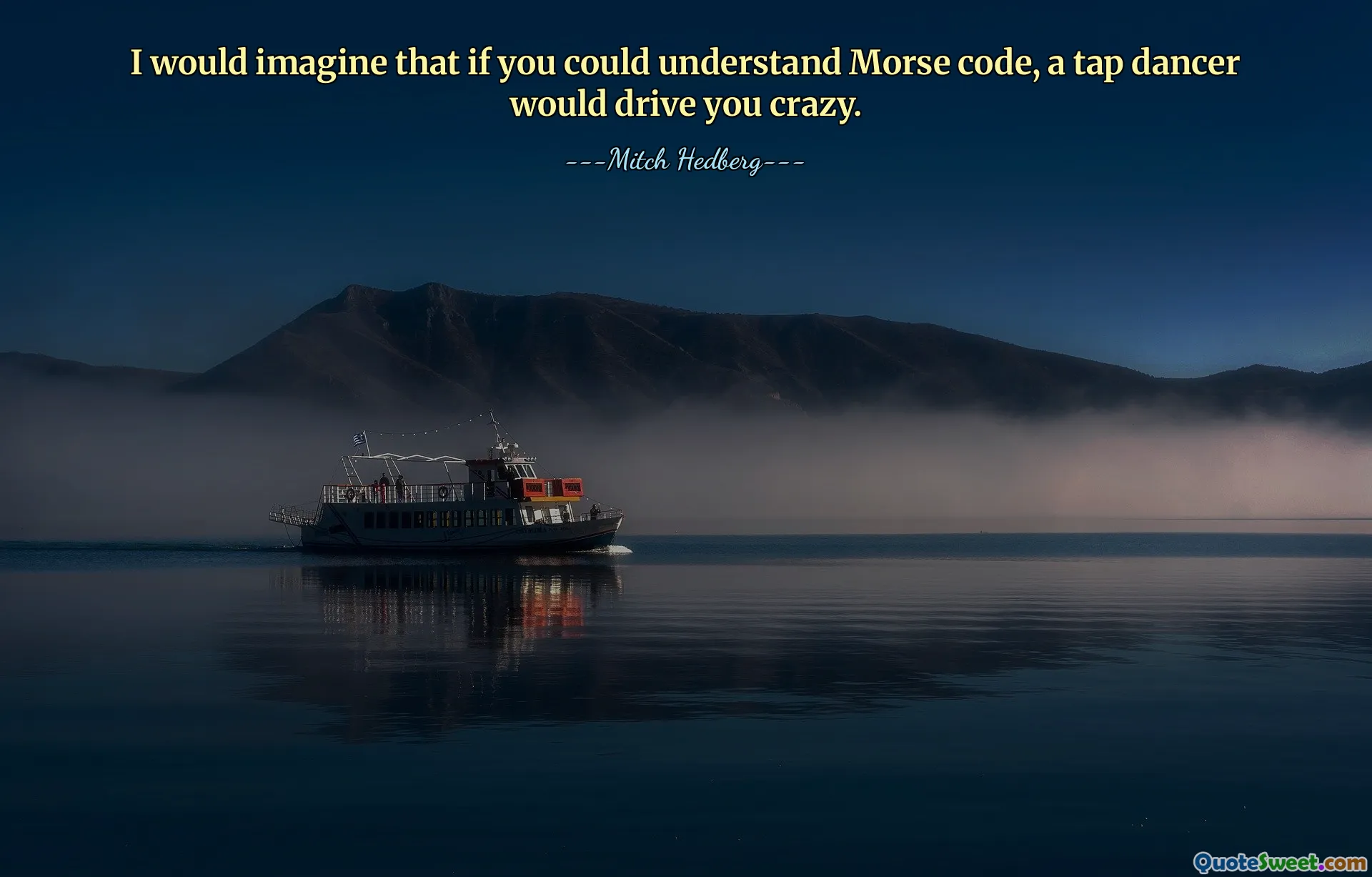
I would imagine that if you could understand Morse code, a tap dancer would drive you crazy.
This quote by Mitch Hedberg offers a humorous perspective on the complexities of communication and the often overlooked intricacies of seemingly simple actions. At first glance, it presents an amusing paradox: understanding Morse code—a method of communicating through rhythmic tapping or signals—might make the continual, rhythmic tap dancing seem overwhelming or maddening. There's an underlying reflection on how context and internal familiarity influence our perception of noise and patterns. Tap dancing, with its precise and repetitive steps, can be mesmerizing or irritating depending on one's experience or mental state; simultaneously, Morse code, a form of silent communication, requires intense concentration to decode. Hedberg's wit underscores how our perception of sounds and patterns can be subjective, shaped by our understanding and expectations. It also invites us to consider how specialized forms of communication—whether it's Morse code, music, or dance—can be both expressions of artistry and sources of potential frustration if misunderstood or overexposed. Moreover, it highlights the complexities in human communication — the difference between the intent behind a message and how it is received or perceived. The humor here also resides in the absurdity of imagining such a scenario: that mere understanding could amplify irritation, rather than mitigate it. Hedberg’s clever playfulness encourages us to think about how perception influences our experience of everyday phenomena and how sometimes, the things we find beautiful or fascinating can also be sources of annoyance, depending on our perspective or mental filters.











